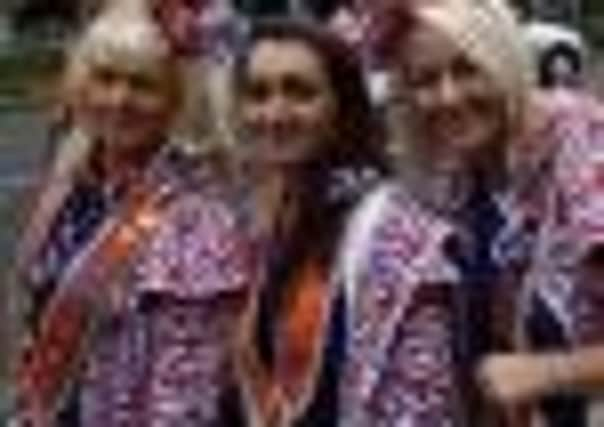Sectarian offences fall at Orange parades in Glasgow


Strathclyde Police said five people arrested on Saturday during marches across the force area were charged with sectarian aggravation, down one from 2011.
There were a total of 36 arrests – up slightly from a year ago, but down compared to the 54 recorded in 2009.
Advertisement
Hide AdAdvertisement
Hide AdPolice said there were 174 parades throughout the Stratyhclyde region, with 46 involving 8,000 marchers, through Glasgow city centre. None of the arrests was for parade participants, with 35 amongst march supporters, and one from a protestor.
Central Scotland Police said three people were arrested in Stirling on Saturday connected with the marches there, one of them for a sectarian breach of the peace.
Police warned in advance of the marches that they would “vigorously” enforce legislation in respect of sectarian and antisocial behaviour and drinking in public during the parades.
The force said it would target the minority of people who watch the event intent on causing disorder and drinking to excess.
Strathclyde Police said: “As of 6pm last night during County Grand Orange Lodge parades there were 36 arrests for a variety of offences. Within that, five were charged with sectarian aggravation.”
The annual Boyne Celebrations, commemorating the victory of Protestant King William of Orange over the Catholic King James in Ireland more than 320 years ago, have prompted calls by police for limits on the number of marches each year.
Restrictions originally placed on marches through Glasgow city centre are expected to be lifted after a review. The council’s leader, Gordon Matheson previously told a hustings of more than 100 Orange Order members that the city’s parade’s policy was “wrong”, driving speculation of attempts to improve relations with the Labour Party before the 2014 independence referendum.
The Grand Orange Lodge of Scotland condemned the limits imposed in 2010 by the council as “religious discrimination”.
Advertisement
Hide AdAdvertisement
Hide AdLast night the council said that it would review the weekend processions, but would not comment yet on their success or failure.
A spokesman for the authority said: “With any large public procession, we review the event afterwards and hold a debrief with the organisers.
“Police input is always vital in that process and any problems they encountered during the day will be raised and taken into account when considering future processions.”
Justice secretary Kenny MacAskill last month hinted at possible attempts to recover the costs associated with policing the marches in Scotland every year.
Robert McLean, executive officer of the Grand Orange Lodge of Scotland, said in response: “We live in a democracy and everyone has the right to freedom of speech and no-one should have to pay for that right.”